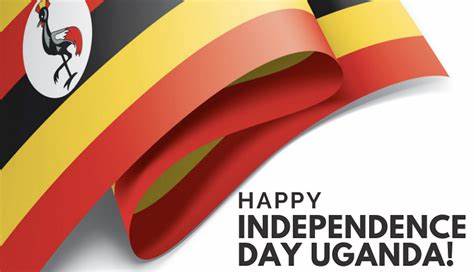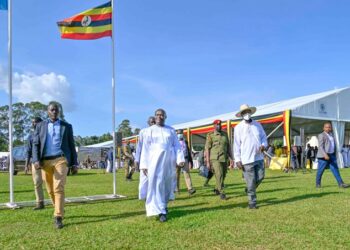Uganda’s so-called independence, declared on October 9, 1962, is often hailed as a moment of liberation. However, in reality, it was nothing more than a shift from direct British rule to local governance under new masters. A sham celebration marked by hollow promises, this day stands as a grim reminder of failed leadership, exploitation, and deep-seated oppression. Over six decades later, the country remains shackled by corruption, poor governance, and a lack of true sovereignty. Instead of celebrating, Ugandans should reflect on what went wrong and why their so-called “independence” has brought nothing but suffering and disappointment.
Edward Mutesa II was the first President of Uganda, a ceremonial figurehead with no real power. The real authority lay with Apollo Milton Obote, the then Prime Minister who would later become President. Obote, despite his flaws, had a vision for a self-reliant Uganda. He sought to free the country from neo-colonial control by nationalizing key sectors and attempting land reforms to benefit ordinary Ugandans. Obote’s vision was radical for its time—he aimed for a unified Uganda that would be free from foreign domination. However, his efforts were constantly sabotaged by local elites and foreign powers that feared losing their influence over Uganda’s wealth.
Obote’s presidency was violently interrupted by the rise of Idi Amin Dada in 1971, a power-hungry soldier who ruled with unprecedented brutality. Under Amin’s eight-year reign of terror, Uganda descended into chaos. The country became a slaughterhouse where thousands were tortured, killed, or exiled. Amin’s rule was marked by human rights abuses, economic devastation, and a paranoid dictatorship that destroyed every semblance of democracy. His atrocities and erratic policies crippled Uganda, leaving behind a legacy of bloodshed and a country in ruins.
In 1979, Amin’s downfall saw a brief return of Obote, whose second regime was even more chaotic due to internal divisions and a rising insurgency. Between 1979 and 1986, Uganda saw a series of short-lived governments, starting with Yusuf Lule and then Godfrey Binaisa. Each of these administrations struggled to restore stability amidst a backdrop of infighting, coups, and external manipulation. They were transitional figures who never held real authority, and their impact was fleeting at best.
Paulo Muwanga and Tito Okello Lutwa followed, each ruling for mere months. Their administrations were marred by instability and the looming threat of civil war. By 1986, Uganda was a shattered nation, with no functioning institutions, rampant lawlessness, and a broken economy. It was in this power vacuum that Yoweri Kaguta Museveni took over, presenting himself as a “liberator” who would restore Uganda’s glory. But nearly four decades later, Museveni’s regime has proven to be even more repressive and exploitative.
Museveni’s rule has been characterized by authoritarianism, a stranglehold on power, and a systematic dismantling of political freedom. His promises of democracy and economic prosperity have turned into a nightmare of corruption, oppression, and nepotism. The so-called “independence” Museveni champions is a mockery of what true liberation means. Under his watch, Uganda’s wealth is plundered by a select few, while the majority languish in poverty. Political opponents are harassed, imprisoned, or exiled, and dissent is violently crushed.
So, should Ugandans celebrate Independence Day? No. This is not a day of freedom but a reminder of broken promises and dreams deferred. It is a day that marks the shift from British colonization to a cycle of brutal and corrupt leaders. Museveni’s prolonged grip on power is the culmination of Uganda’s post-colonial nightmare. Instead of celebrating, Ugandans should mourn the loss of Obote’s dream for a self-reliant nation and demand the real independence they have been denied for over 60 years. True freedom remains a distant hope, buried under decades of betrayal and suffering.







Discussion about this post